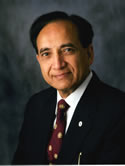Is open surgery for head and neck cancers truly declining? Journal Article
| Authors: | Hartl, D. M.; Brasnu, D. F.; Shah, J. P.; Hinni, M. L.; Takes, R. P.; Olsen, K. D.; Kowalski, L. P.; Rodrigo, J. P.; Strojan, P.; Wolf, G. T.; Rinaldo, A.; Suárez, C.; Mendenhall, W. M.; Paleri, V.; Forastiere, A. A.; Werner, J. A.; Ferlito, A. |
| Article Title: | Is open surgery for head and neck cancers truly declining? |
| Abstract: | In the past two decades, major modifications in the way we treat head and neck cancers, due to advances in technology and medical oncology, have led to a decline in the use of open surgery as first-line treatment of cancers arising from several primary tumor sites. The incidence of tobacco- and alcohol-related squamous cell carcinoma of the pharynx and larynx has been steadily decreasing, with a rise in the incidence of human papillomavirus-related oropharyngeal tumors and the use of minimally invasive endoscopic surgery and non-surgical treatment modalities has increased in the treatment of all of these tumors. However, open surgery remains the initial definitive treatment modality for other tumors, including tumors of the skin, oral cavity, sinonasal cavities and skull base, salivary glands, thyroid and sarcomas. Selected group of nasal, paranasal, base of the skull and thyroid tumors are also candidates for minimally invasive procedures. For some indications, the rate of open surgery has actually increased in the past decade, with an increase in the incidence of oral cavity, thyroid and skin cancer, an increase in the number of neck dissections performed, and an increase in salvage surgery and free flap reconstruction. The use of minimally invasive, technology-based surgery - with the use of lasers, operating microscopes, endoscopes, robots and image guidance - has increased. Technology, epidemiology and advances in other domains such as tissue engineering and allotransplantations may further change the domains of competencies for future head and neck surgeons. © 2012 Springer-Verlag Berlin Heidelberg. |
| Keywords: | cancer survival; primary tumor; overall survival; review; head and neck surgery; laryngectomy; neck dissection; salvage therapy; postoperative care; treatment; antineoplastic agent; treatment indication; melanoma; progression free survival; incidence; skin cancer; sarcoma; head and neck cancer; conservative treatment; endoscopic surgery; thyroidectomy; oropharynx cancer; minimally invasive surgery; thyroid cancer; robotics; salivary gland cancer; taxane derivative; laser surgery; free tissue graft; larynx cancer; ear nose throat surgery; tissue engineering; paranasal sinus cancer; skull base tumor; tracheostomy; mouth cancer; tonsillectomy; allotransplantation; gastrostomy; chemoradiotherapy; induction chemotherapy; wart virus; virus carcinogenesis; hypopharynx cancer; head and neck squamous cell carcinoma; clinical trial (topic); molecularly targeted therapy; laser; microscope; endoscope; open surgery; non melanoma skin cancer; transoral robotic assisted surgery |
| Journal Title: | European Archives of Oto-Rhino-Laryngology |
| Volume: | 270 |
| Issue: | 11 |
| ISSN: | 0937-4477 |
| Publisher: | Springer |
| Date Published: | 2013-11-01 |
| Start Page: | 2793 |
| End Page: | 2802 |
| Language: | English |
| DOI: | 10.1007/s00405-012-2322-y |
| PROVIDER: | scopus |
| PUBMED: | 23283241 |
| DOI/URL: | |
| Notes: | --- - "Export Date: 2 December 2013" - "CODEN: EAOTE" - "Source: Scopus" |



